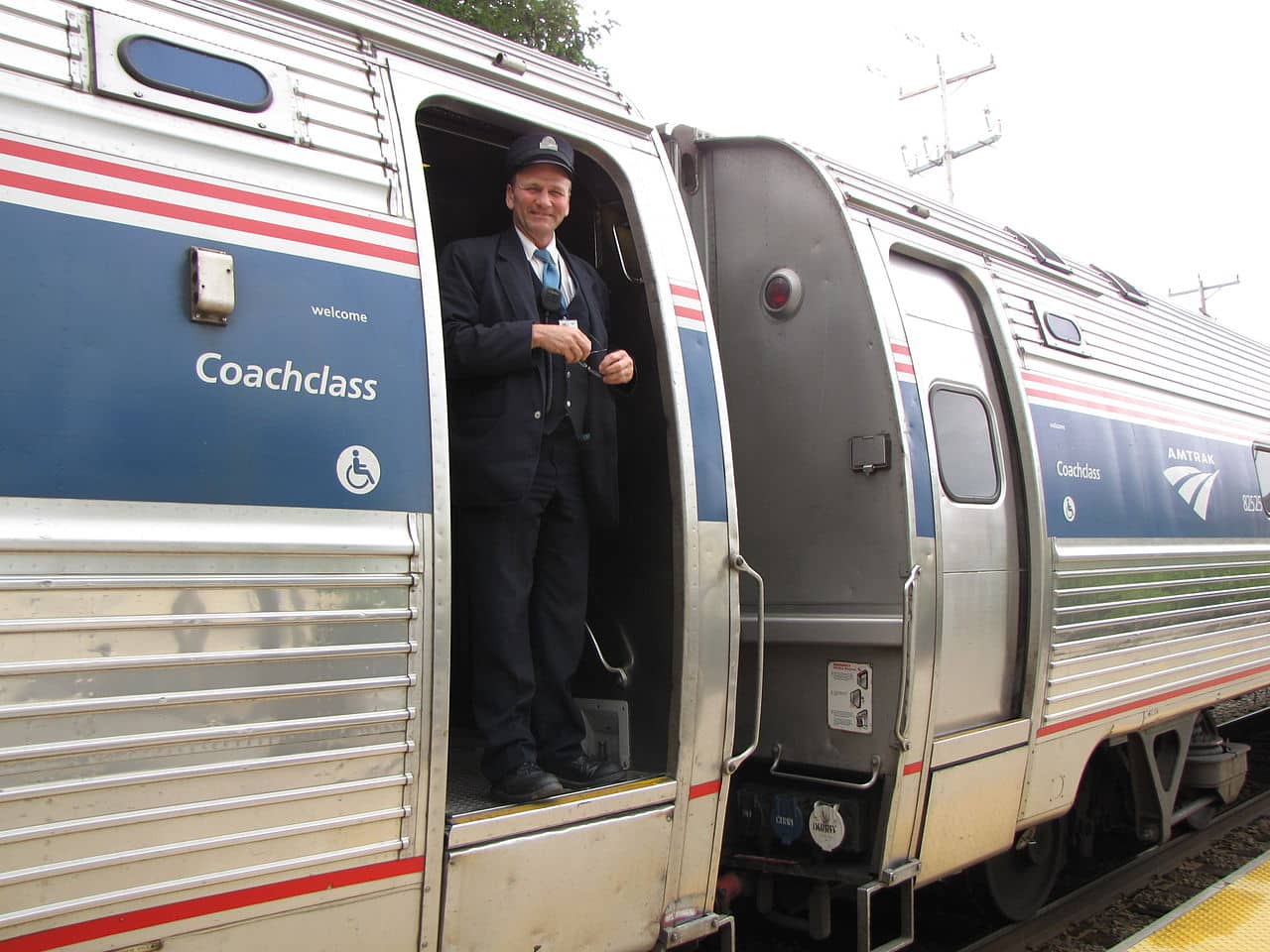Train Conductor Vs Locomotive Engineer – A True Team
The difference between a Train Conductor vs Engineer is that a train conductor is customer facing and will run the train, whilst the locomotive engineer will drive the train.
If you become a locomotive engineer, you’ll join the ranks of the most skilled and experienced of all railroad workers. There are few key differences between a train conductor vs. engineer.
After having several years experience as train conductors, some people will apply to obtain a certificate in order to become locomotive engineers. Having plenty of previous experience as a conductor or other rail industry worker is recommended.
First requirement is to have a high school diploma (or GED equivalent). You will need to pass a background check and drug test.Locomotive engineers must be certified by the Federal Railroad Administration (FRA) .
The certification, conducted by the railroad that employs them, involves a written knowledge test and a skills test. This will determine that the engineer understands all physical aspects of the particular route on which he or she will be operating, according to U.S. Bureau of Labor Statistics.
At the end of the certification process, the engineer must pass a vision and hearing test and then they are ready to start work.

Locomotive Engineers Explained
Also known as train engineers, are responsible for driving trains from one destination to another. They operate large trains carrying cargo or passengers.
Train Engineers adjust train speeds to accommodate for weather conditions, time of day & traffic or congestion on the railroads.
They collaborate with other railroad workers, monitor locomotive equipment, update train inspection logs, and make sure that trains remain on schedule.
Engineers must be completely aware of the goods their train is carrying because different types of freight require different types of driving, based on the conditions of the rails.
As a locomotive engineer you need to be able to stay focused on the job in a high stress environment, able to multi-task, to excel under pressure. Ability to communicate perfectly is essential to being a great locomotive engineer. Furthermore time & people management plus mechanical skills are highly important too.
The conductor is an entry-level railroad job, many locomotive engineers have started as conductors. I have a wrote many articles about being a train conductor as I believe it is on of the world’s best jobs. Perhaps I am biased.
“When a train goes through a tunnel and it gets dark, you don’t throw away the ticket and jump off. You sit still and trust the engineer.”
Corrie Ten Boom
Train Conductor vs Locomotive Engineer – Conclusion
As you probably know by now, there is a huge difference between a train conductor and an engineer. In essence they both have the same mission, to safely deliver the train, the cargo and/or passengerson time. The locomotive engineer being is in charge of the locomotive and driving, and the conductor in charge of the freight/passengers needs.
Together they make a great team!


